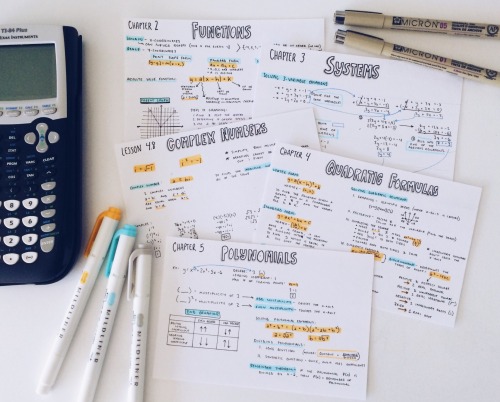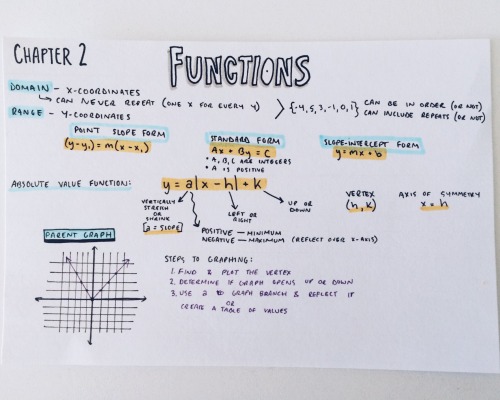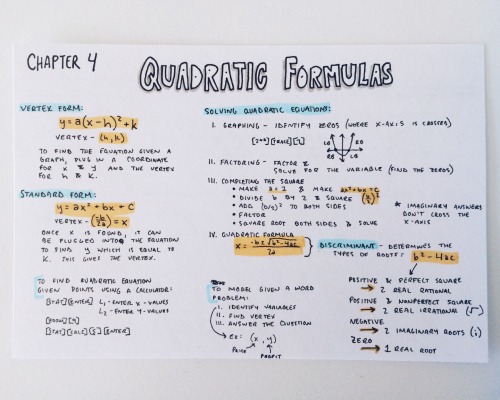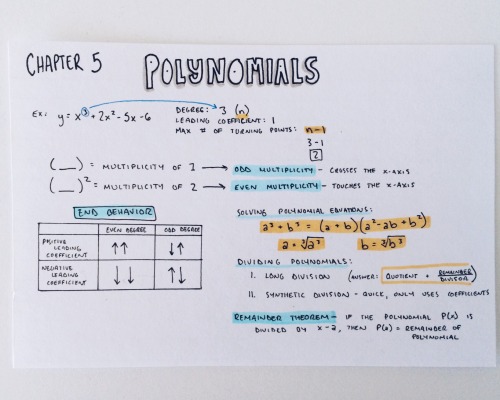Here Is A List Of Questions I Have Already Answered About Graduate School!!
here is a list of questions i have already answered about graduate school!!
please check it before you send me a question about graduate school :) :) i hope it’s useful! xo // updated 08.2019
basic info
what is the PhD and what can you do with it? (+)
what does a literature PhD entail?
should i do a PhD if i have to pay tuition?
does it look bad to take time off between degrees?
what was your timeline like?
what’s the difference between a terminal MA and a PhD? (+)
does getting an MA first help you get into a PhD program?
application process
how can i prepare for applying early in my undergrad career? (+) (+)
where should i start looking for programs?
should i choose a program based on rank or fit? (+)
how many programs should i apply to?
parts of the application
advice on the writing sample
advice on the GRE (+)
how should i ask for letters of recommendation?
how should i write a statement of purpose? (+)
how do i demonstrate my “ability to excel”?
how should i address mental health/family/personal issues that impacted my grades?
grad school application spreadsheet
how should i email potential advisors? (+)
how can i survive the waiting period? (+)
how should i prepare for an interview or phone call? (+)
what should i ask at open house?
what should i do if i don’t think i can afford my grad school tuition?
what should i do the summer before i start my program?
seminars/coursework
how should i plan for grad seminar presentations? (+)
what should i bring with me to seminars?
what are grad seminars like?
how can i get better at speaking during seminars?
reading
what should i have read before i start my lit grad program?
how much reading should i expect?
how can i read a lot without getting overwhelmed? (+)
how can i read efficiently? (+) (+)
quals-specific reading advice
how should i take notes on critical articles?
writing
how do i write a lit review?
how do i write an indicative bibliography?
how do i choose a dissertation topic? (+)
how do i plan for a long research paper?
how do i balance all the different kinds of writing i have to do?
money
how do finances work in grad school?
what is adjuncting and why does it suck?
how can i budget while on a stipend?
should i work while in grad school? (+)
fellowship, postdocs, & job stuff
how do i think up a second project when i’m not even done with my dissertation?
CV writing tips
which websites post US fellowship/postdoc/job ads?
how do dissertation fellowships work?
tips for grant, award, & fellowship applications
misc
will grad school make my mental health issues worse? (+)
how do i survive conferences?
how should i deal with burnout? (+)
i think i want to quit
my advisor is ghosting me
how do i work with no structured schedule?
how do i get enough sleep?
how do i balance my work & my teaching?
how can i beat imposter syndrome? (+)
how can i excel in grad school?
More Posts from Swirlspill-study and Others

as requested by quite a few people - a masterpost of educational podcasts. links go to either the site or the itunes podcast store. an excerpt of the description is included with each.
* indicates a podcast that i listen to regularly
entertainment
*welcome to night vale - twice-monthly updates for the small desert town of night vale
*muggle cast - everything harry potter
general information
radiolab - investigation told through sounds and stories, and centered around one big idea
*stuff you should know - about everything from genes to the galapagos
*stuff mom never told you - the business of being women
tedtalks
good job, brain - part pub quiz show, part offbeat news
news
no one knows anything - the politics podcast from buzzfeed news
wait wait…don’t tell me - weekly current events quiz
college
*college info geek - the strategies and tactics the best students use
*getting in - your college admissions companion
math
math for primates - a couple of monkeys who decided that arguing about mathematics was a better use of their time than throwing poo at one another
math mutation - fun, interesting, or just plain weird corners of mathematics
science
60 second health - latest health and medical news
the naked scientists - interviews with top scientists, hands-on science experiments
60 second science - the most interesting developments in the world of science
startalk - astronomy, physics, and everything else about life in the universe
nasa science cast - science behind discoveries on earth, the solar system, and beyond
history
*myths and legends - myths, legends, and folklore that have shaped cultures
stuff you missed in history class - the greatest and strangest stuff you missed
the podcast history of our world - from the big bang to the modern age! …eventually
witness - the story of our times told by the people who were there
the history chicks - two women. half the population. several thousands years of history.
entrepreneurship & finances
practical money matters - better managing their finances
the internet business mastery - learn how to create an internet based business
social triggers insider - the fields of psychology and human behavior
listen money matters - honest and uncensored, this is not your father’s boring finance show
writing & literature
professional book nerds - it’s our job to discuss books all day long
a way with words - words, language, and how we use them
grammar girl - short, friendly tips to improve your writing
classic poetry aloud - recordings of the greats poems of the past
language
esl (english) - improve english speaking and listening skills
language pod
coffee break
search in your podcast app for specific languages!
art
99% invisible - exploration of the process and power of design
tips and tricks photography
the arts roundtable
hobbies & other
stash & burn (knitting)
practical defense - staying safe in our increasingly dangerous urban environments
zen and the art of triathlon - a triathlete’s view on living the multisport life
the art of charm - make you a better networker, connecter, and thinker
the indoor kids - isn’t just about video games, isn’t not about video games
rationally speaking - explore the borderlands between reason and nonsense
the dice tower - board games, card games, and the people who design and play them
motivational & inspirational
back to work - productivity, communication, work, barriers, constraints, tools, and more
personal growth podcast - classic and contemporary self development audio
what it takes - conversations with towering figures in almost every field
here be monsters - exploring the dark corners of the human mind
on being - the big questions of meaning with scientists, theologians, artists, teachers



1/100 ➵ 190216
My love for perfection always ends up in procrastination, so I’m really excited to finally start with this challenge, yay! These are my Algebra notes for my big exam in July…and I’m quite happy with this writing system now.
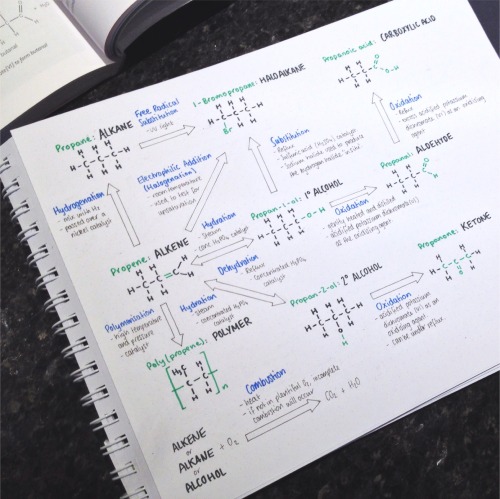
20.3.16// I made a poster on all the organic chemistry reactions we’ve covered so far in the year. It’s a great summary sheet which should be useful come exam time!
I kind of wish that the idea that you can just be was a little more mainstream.
Like, having drive and ambition is great. But it gets drilled in kids’ heads that there is some pressure to constantly be looking for the next move up, to be bigger than life. It wears you down to never be satisfied.
Not everyone is destined for greatness. It just doesn’t suit some people.
There’s nothing wrong with having a quiet life, making enough to get by, having a small apartment where you’re comfortable, and just living. You don’t have to constantly be looking to go onward and upwards. Sometimes the best thing you can do for yourself is to just be.
How to Take Notes: from a Textbook
(Be sure to change the post type from link to text post when you reblog, if that’s what you want to do)
This method is best suited for textbook or article notes, and is a version of revised notes. It is also well suited for books you plan on returning to the bookstore or books you have rented, as it does not involve writing directly in the book itself.
First, you’ll need to find a notebook, and the pens you like the best. My favorite notebooks to work with for note-taking, especially for my “revised” notes, are the Moleskine, hard or soft cover, in size extra large. For this specific class (Intro to Gender and Women’s Studies), I decided that lined pages would suit my needs better. For my math, engineering, and science classes, I usually opt for squared paper, as I draw in lots of diagrams and graphs.
My favorite pens ever are Staedtler Triplus Fineliners, so even though they show through the pages a little bit, I still choose to use them. I just love the way they write. I usually write out my notes themselves with a Pilot G2 05 with black ink, as it writes with a finer line and doesn’t bleed through quite as much.
I usually try to set up my notebooks about a week or so before class starts, that way it’s ready to go on my first day of class.

You’ll want to start off by setting up your notebook. On my first page, I put my course code for my university, as well as the course title.

Next, and this is perfectly optional (I just like the way it makes the book look, especially at the end of the semester), I include some sort of related quote to the course. For my engineering courses (which are related to my major), I put a different quote at the beginning of each section. But as this is a two-month long course during the summer, I opted for one quote by Mohadesa Najumi at the beginning of my book.

Next I set up my table of contents and include a page with basic course information. As this course is all online, my course information just included the start and end dates of the course, what time content is posted and on what day, and the name of my professor. For my usual courses, I will include the days of the week the class meets on and where, TA names and contact info, as well as posted office hours for my professors and TAs and tutoring hours either in the library or in the College of Engineering.

Next is one of the things I’m most proud of.
While I religiously use my Erin Condren planner to map out my days, weeks, and months, I have found throughout my college experience that including monthly views for the months my class ranges has been helpful. This way, there’s no sifting through the multiple colors I have in my planner, and everything related to that class is in the same notebook.
On this calendar I include start dates of the class, the end date, the dates of exams or quizzes, assignment deadlines, office hours, etc.
For this course, as I just started a few days ago, I don’t have a lot of dates or information, so my calendars are still very empty.


Next up I go to my weekly overview. At the beginning of each week, I set up a weekly layout, and I include a list of assignments, tests, quizzes, tasks, projects, etc that need my attention throughout the week, and I place the days I plan on doing them or the days they need turned in onto the weekly layout.

Now you’re finally ready to get into taking the notes.
Gather your book, some sticky notes, and your favorite pen or pencil.
I color code my stickies so that the “revision” process later goes a bit smoother. In this case, I’m using blue to denote something interesting, intriguing, or thought provoking, greenish-yellow to represent the facts or important concepts, and pink for important vocabulary words and their definitions.

Read the selection once.
As you read along the second time, write notes on your stickies, and place them in a place of relevance directly on the page in the book. Just make sure you don’t cover up anything you need to keep reading.



Now, once you’ve read all the material in questions (you can choose to break it up however you want, but since Chapter 1 was assigned for the week, I’ve elected to break it into chapters), carefully remove your stickies one by one and lay them out on a flat surface. This is when having a separate color for vocab can be helpful, as I sometimes put all of my vocab at the beginning or end of a section, especially if the section of reading was particularly large.
Organize your stickies in an order that makes sense to you, and use this order as your basis for transferring those notes into your notebook. The order you choose can just be lumping them under similar headings. Some classes even lend themselves to a nice chronological order. Whatever you choose, just make sure it’s something that will make sense to you when you come back to it in the end.

Okay so up there I wasn’t following my own advice, I just thought I would include the picture because my handwriting looks nice…

Now organize the stickies!

Now you just start writing everything from the stickies into your notebook. I like to take each category or subgroup and put them in the book on the facing page, then put them back in my textbook as I finish with each post it.

Moving on to the next category.


Before you know it, you’ve written all of your stickies into your notebooks.

Now you’re revved up and ready to go. You can either keep going and make a note summary page (which I’ll show you next week), or you can leave it. These will also be helpful when reviewing for tests and quizzes. You can highlight or underline, or use even more stickies (which is what I usually do) as you review.
Well, that’s all I have for you right now. Happy studying!
(To view this post on wordpress, click here)
hello!! if u are applying to grad school (humanities or STEM!) & u
are trying to save money on application costs
are interested in programs that care abt saving u money on application costs
are interested in programs that are aware of the fact that the GRE tells them nothing of use about your academic abilities
this site may be useful to you as you decide where to apply :-)
-
 swirlspill reblogged this · 2 months ago
swirlspill reblogged this · 2 months ago -
 lastditchattempt liked this · 2 months ago
lastditchattempt liked this · 2 months ago -
 motionpicturesoundtrack liked this · 3 months ago
motionpicturesoundtrack liked this · 3 months ago -
 falsecompare liked this · 5 months ago
falsecompare liked this · 5 months ago -
 kennedypeterson liked this · 5 months ago
kennedypeterson liked this · 5 months ago -
 nefarious-virgo liked this · 5 months ago
nefarious-virgo liked this · 5 months ago -
 studysessionswithbee liked this · 9 months ago
studysessionswithbee liked this · 9 months ago -
 oa-trance liked this · 10 months ago
oa-trance liked this · 10 months ago -
 iamuniverseblog liked this · 11 months ago
iamuniverseblog liked this · 11 months ago -
 goblin-dm liked this · 11 months ago
goblin-dm liked this · 11 months ago -
 robbyrobinavitch reblogged this · 11 months ago
robbyrobinavitch reblogged this · 11 months ago -
 robbyrobinavitch liked this · 11 months ago
robbyrobinavitch liked this · 11 months ago -
 somerunner liked this · 1 year ago
somerunner liked this · 1 year ago -
 sierra-romeo-kilo liked this · 1 year ago
sierra-romeo-kilo liked this · 1 year ago -
 now-or-never-ever liked this · 1 year ago
now-or-never-ever liked this · 1 year ago -
 louweetomlinson liked this · 1 year ago
louweetomlinson liked this · 1 year ago -
 feelthemadnessinside liked this · 1 year ago
feelthemadnessinside liked this · 1 year ago -
 foxfables liked this · 1 year ago
foxfables liked this · 1 year ago -
 louvatacelt reblogged this · 1 year ago
louvatacelt reblogged this · 1 year ago -
 louvata liked this · 1 year ago
louvata liked this · 1 year ago -
 magnolia-pollen liked this · 1 year ago
magnolia-pollen liked this · 1 year ago -
 e-ellaa reblogged this · 1 year ago
e-ellaa reblogged this · 1 year ago -
 studydiary4naj reblogged this · 1 year ago
studydiary4naj reblogged this · 1 year ago -
 ohwellokcomputer reblogged this · 1 year ago
ohwellokcomputer reblogged this · 1 year ago -
 ohwellokcomputer liked this · 1 year ago
ohwellokcomputer liked this · 1 year ago -
 rosa-rubiginosa liked this · 1 year ago
rosa-rubiginosa liked this · 1 year ago -
 twentyfourlivesforinfinity liked this · 1 year ago
twentyfourlivesforinfinity liked this · 1 year ago -
 sporkinator liked this · 1 year ago
sporkinator liked this · 1 year ago -
 gulgulhx liked this · 1 year ago
gulgulhx liked this · 1 year ago -
 pale-radio liked this · 1 year ago
pale-radio liked this · 1 year ago -
 snowykatz reblogged this · 1 year ago
snowykatz reblogged this · 1 year ago -
 forthehonor0fgreywhales liked this · 1 year ago
forthehonor0fgreywhales liked this · 1 year ago -
 twirldear liked this · 1 year ago
twirldear liked this · 1 year ago -
 silverfozz reblogged this · 1 year ago
silverfozz reblogged this · 1 year ago -
 suohanhan liked this · 1 year ago
suohanhan liked this · 1 year ago -
 lets-get-ready-to-ramble liked this · 1 year ago
lets-get-ready-to-ramble liked this · 1 year ago -
 un-local liked this · 1 year ago
un-local liked this · 1 year ago -
 byyrgenwerths liked this · 1 year ago
byyrgenwerths liked this · 1 year ago -
 belongtobe reblogged this · 1 year ago
belongtobe reblogged this · 1 year ago -
 catboybiologist liked this · 1 year ago
catboybiologist liked this · 1 year ago -
 lightyagami-1 liked this · 1 year ago
lightyagami-1 liked this · 1 year ago -
 studyinspiremotivate reblogged this · 1 year ago
studyinspiremotivate reblogged this · 1 year ago -
 ucunatwhimlaou liked this · 1 year ago
ucunatwhimlaou liked this · 1 year ago -
 redstonekate liked this · 1 year ago
redstonekate liked this · 1 year ago -
 queriff reblogged this · 1 year ago
queriff reblogged this · 1 year ago
a study blog for collected references, advice, and inspiration
267 posts
